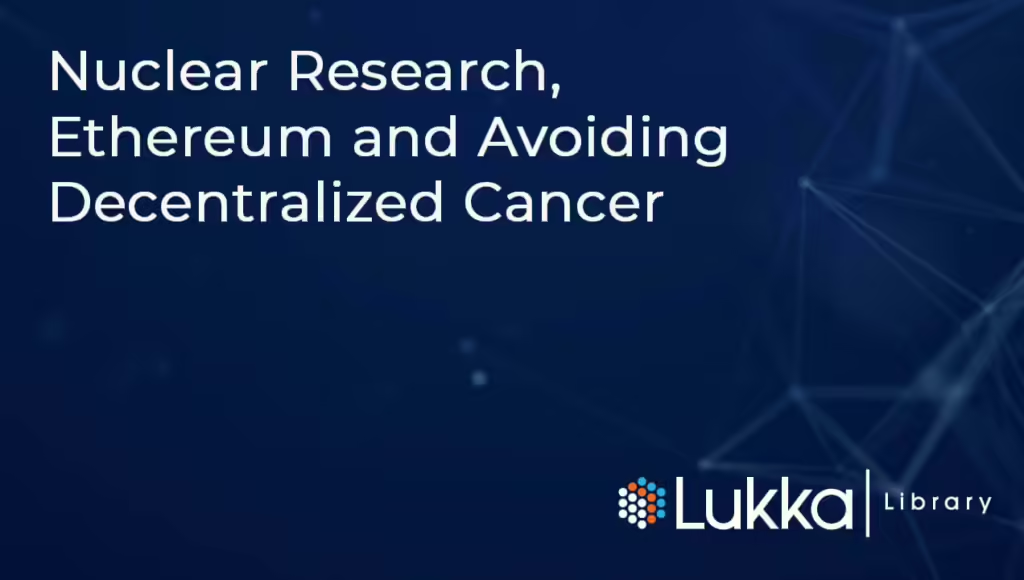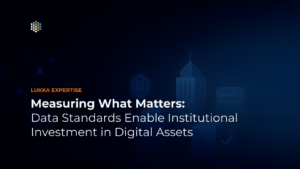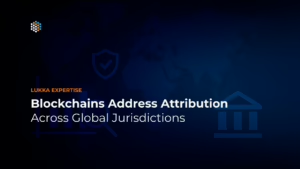In 2014, Ethereum raised approximately 15 million dollars to create a decentralized platform to allow the execution of smart contracts. Ethereum defines a smart contract as “applications that run exactly as programmed without any possibility of downtime, censorship, fraud or third party interference.”
Now, approximately one year later, Ethereum has gone live with “Ethereum Frontier” — Frontier being their way of describing their platform as an “alpha release,” potentially harmful and unforgiving, something akin to the days of the Wild West in US history. On Ethereum’s website, they state that “Exploring the Frontier presents vast opportunities, but also many dangers, and is not for everyone.” At the heart of Ethereum’s platform, are transferable “tokens” called “Ether” — “a tradeable digital token that can be used as a currency, a representation of an asset, a virtual share, a proof of membership or anything at all.”
Now before we take the red pill, let’s summarize — Ethereum has received over $15 million in funding and houses decentralized applications without any possibility of downtime, censorship, fraud, or third party interference, centered around transferable tokens that can be ascribed to anything at all.
***
In 1905, Albert Einstein released a paper, “Annalen der Physik” — in it, was his famous formula that connected mass and energy, which led the way into a new era of physics, and eventually nuclear energy.
Approximately 103 years later, Satoshi Nakamoto put forth his paper, “Bitcoin: A Peer-to-Peer Electronic Cash System” — that lead to the formation of a completely new mean of exchange, a trustless system based on mathematics from which many analysts and experts heralded would be the beginning of new technology that would completely change the world’s financial systems and aid the unbanked.
***
Ethereum, which has arisen from Bitcoin, represents a completely innovative and even more disruptive and world-changing application of decentralized technology. If we equate nuclear research that happened following Einstein’s groundbreaking theorems, it’s important that we learn from the past and follow cautiously in a controlled, test-driven setting for new technology arising out of Satoshi Nakamoto’s hypotheses.
Let’s digress for a moment and talk a little bit more about nuclear research. The reason it’s important and ties in to Ethereum, is that Ethereum is rooted in — “applications that run exactly as programmed without any possibility of downtime, censorship, fraud or third party interference.” This is similar to in nuclear fission, when a criticality event occurs. Once a threshold has been reached — an automatic and mathematical succession of conditional reactions occur. The same happens with Ethereum — once an event is triggered, an application automatically and algorithmically executes.
In nuclear research, a “criticality accident” is “an uncontrolled nuclear chain reaction. It is sometimes referred to as a critical excursion or a critical power excursion and represents the unintentional assembly of a critical mass of a given fissile material, such as enriched uranium or plutonium, in an unprotected environment.”
With Ethereum, the current stage of development and research also puts individuals and organizations at the same type of risk for a criticality accident — perhaps this is why there are so many warnings on their website and why they equate the current release to the “Frontier” or days of the Wild West. As such, it’s important to look at some of the elements at risk in the Ethereum ecosystem to begin to qualify challenges and what can be done to mitigate them.
Ethereum Risks Obfuscating the Rule of Law
Contract law is perhaps one of the most complicated forms of law, legal practice and education. The first dimension of this complexity is that the area of law, in itself, is generally based on legal precedent — rulings and previous legal documentation that creates an implied assertion about how one should objectify how it applies to some sort of present context, situation or event. Many of today’s contracts are literally based on billions of pages of previous contracts and legislation that led to the status quo, and quite frankly, debatable. This leads us to the second dimension of complexity of contract law — the subjectiveness of it. Two or more parties put together a legal binding agreement. Often times, these parties disagree on what the agreement means — it can even be just one singular word in a contract that ends up creating a significant legal issue or disagreement between the parties. As a result, an entire economy of litigation has arisen out of contract law, with billions of dollars exchanging hands via court rulings as a result.
How does a platform like Ethereum co-exist with the rule of law?
At scale, when contracts are being drawn between two or more parties attorneys are involved. How does this work in Ethereum when we add the complexity of contract law, above, to the equation? Most attorneys are not software engineers, therefore, it will be difficult to codify a smart contract in a way that is economical, let alone, timely. It is not difficult to surmise that at scale with Ethereum, one or more parties that wish to utilize a smart contract will need to hire attorneys to put together a legally binding contract in the format and mediums that already exist, and then hire software architects to design a smart contract out of it, and then finally software engineers to actually develop it. Depending on the underlying actual and implied value of the contract, quality assurance engineers as well to verify the outcome. Upon each step of this process, is it risky that something will be misunderstood, in the same simple way like when we played the telephone game as children, where we would all sit in a circle and one person would send a message to another person that would then be repeated all the way around the circle into the next person’s ear until it went all the way around. Often times this would result in a completely different message manifesting itself. How do we prevent this from happening in a smart contract application?
Installation Requirements — Attorneys with Both Law & Computer Science Degrees
Perhaps one of the only ways to deal with the multi-party issue above, and hopefully avoiding miscommunications in the development of a smart contract application between the parties and attorneys that are involved, is to have multiple lawyers prepare it that also will be responsible for developing and coding it, first-hand. This would be an extremely narrow niche in the current economies we all live in.
Also, in this scenario time is a bit of a concern. Often, it takes a lot of time for attorneys to draft documents with one another and finalize agreements before finally turning them over for execution to the signatories. It is difficult enough, and also expensive, repeatedly revising an electronic, paper form of a document (sometimes hundreds or even thousands of pages) and passing around to various parties for approval before settling on a final draft. Also, attorneys often rely on paralegals, or subordinate attorneys in their practice or firm to help put together and revise certain components. In a smart contract, these actions would be severely limited, as many of these people simply are not going to have the engineering background to make sure that the position of a client is being protected algorithmically, in an objective way. Many people who have built software before can also relate to how time consuming it is, and how often it has to be revised. Lastly, often when building applications, the end-result ends up looking nothing like the original design. Smart contracts, since they are decentralized applications, would also be subject to this problem. How will an economy develop around Ethereum to avoid this?
Is a decentralized smart contract application an oxymoron?
Contract law would not exist if there was not a judge or jury at the center, serving as the arbiter to decide on or rule in a dispute between two or more parties. In order for a decentralized smart contract application to exist, the moment it is put into production (i.e. when it goes “live”) it immediately is going to fall under the legal jurisdiction of one or more local, regional, national or sovereign municipalities — probably even before, even when it’s being tested. Two or more parties simply can’t draft up contract applications that don’t obey laws of the areas they are residing in.
Also, with a smart contract application, what happens when there is a disagreement between parties? Who decides on the outcome if everything is decentralized?
A decentralized application, by it’s very design simply can’t just be “turned off” — it would be one thing if there was a central server that could be unplugged or accessed to block an application from executing, but in a decentralized scenario, that’s impossible without turning off the Internet, or specifically using networking filtering technology to stop the nodes (copies of the application) from talking to one another and continuing to process. Even in that scenario, if someone or some group turns off and abruptly terminates a smart contract application from executing — is that not already the opposite of decentralization? Is that not a central authority?
In our current society, everything at scale leads to centralization.
Is it really true in this day and age that something can be developed “without any possibility of downtime, censorship, fraud, or third party interference”?
And what happens when a court rules that the outcome of the execution of a smart contract needs to be changed, or reversed, or revised so that rights of one or more parties can be protected? Or that a monetary settlement should arise as a result of someone’s rights being violated or infringed upon? Better yet — what about a class action settlement that applies to hundreds or even thousands of smart contract applications? In this scenario we must revisit some of the earlier scenarios, regarding needing someone to be present to refactor, redesign or reconstitute a new algorithmic contract. Also, if a new contract is going to execute subject to a ruling of a judge or legal body — doesn’t someone or some group need some sort of “god access” to the decentralized system in order manually execute in some scenarios? And speaking of that…
A New Threat to Cyber Security
In recent years, the rise of cyber terrorism has led to billions if not trillions of dollars being lost as a result of people having their personal information compromised, credit cards stolen and bank accounts hacked. With the rise of smart contracts through a platform such as Ethereum, one must also consider the inherent risks to allowing agreements to be processed irreversibly, at the speed of light.
What happens when we take a judge’s gavel away in our old system of contract law and give it to a computer?
We’ve all seen how fast someone can run up a bunch of charges on a credit card that has been stolen. What happens when a group of hackers takes control over the ability of one large organization to enter into smart contracts with another? How does one stop the subsequent result when the platform is designed to be immune to any “third-party interference” — something a court, then, would never be able to go back and fix? What happens when we can’t “turn it off” to stop the damage from spreading?
It is also mentioned that Ethereum is immune to fraud. How is this possible? It is not quite clear how anything in this world is immune to fraud. People often have their social security numbers stolen, their computers infected with malware, their keystrokes logged and their passwords stolen. New forms of malware aren’t even software based — they infect the hardware itself, making it possible to hack someone just by connecting electricity.
How is Ethereum immune to fraud and third-party interference if the Internet isn’t immune to malware?
Another Hurdle — Maintaining Tax Compliance
For anyone residing in the United States, Ether tokens, since they have an implied fiat value and can be bought or sold with digital assets, like Bitcoin, fall under IRS 2014–21. This means that anytime someone receives an ether token, they must establish a cost basis — in other words, determine how much it is worth on that day they received it. Then, when they redeem their ether token, or it transfers ownership because of the execution of a smart contract application, they must pay a capital gains tax if it became worth more than it was acquired for at the time the execution or redemption occurs.
Also, in order to truly function beyond a currency (like Bitcoin) it also gets quite a bit more complicated than that.
In order for smart contract applications to conceptually exist, there must also be smart accounting applications. For as we’ve already alluded to, contract law is quite a complex topic. Once we open the door to this we must also do so with accountancy as well, because at the very root of Ethereum, a financial transaction is involved, which also means financial records. Also, with the execution of a smart contract, no doubt in many instances subsequent “off-ethereum” financial transactions will also result, where proper “smart accounting applications” will be needed.
We might also need CPAs with computer science degrees.
Not Forgetting or Recognizing Ingenuity
This post is by no means meant to discount the technological achievements of Ethereum, nor discredit, destroy, or impede the efforts of any creators, designers or developers involved in the project. It is, in fact, a world full of amazing technological advances when one begins to consider the possibilities as a result of smart contract applications.
It is important, however, that each step along the way, we analyze and try to conceive the repercussions of choices and any undesirable outcomes so that they can be properly analyzed and mitigated where needed to ensure that the future of our society remains healthy. We should try to iterate to avoid the crutch of antiquated, legacy technology systems continuing to be the status quo.
As new advances take place in decentralized applications and smart contracts, it’s important that we ask questions and work together to try to find the answers before giving the keys to the outcome of an algorithm. Untested and uncontrolled, Ethereum’s outcome might not be as nuclear in such a positive way like so many people think.
If we want to live in a decentralized world, we have to figure out answers to the tough questions and potential problems that a decentralized solution like Ethereum can create.



